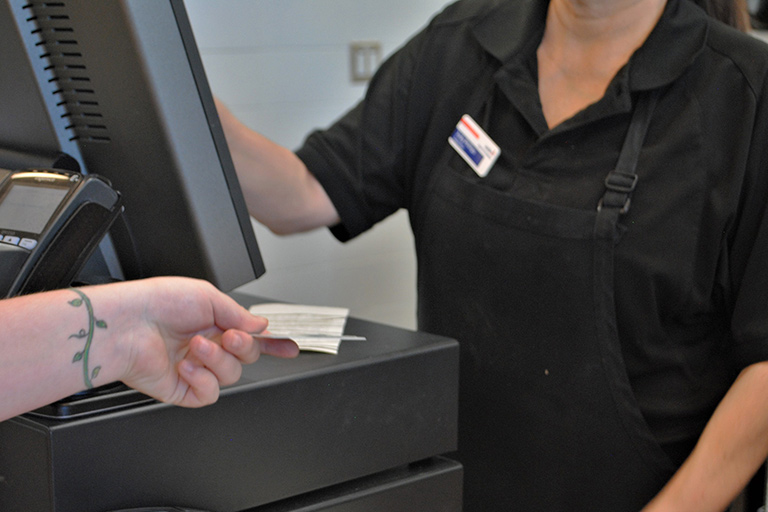College is the first time that many students begin managing their money independently. If you are not careful, you can easily create bad money management habits which can result in the loss of money you did not intend to spend. By learning how to smartly budget and spend your money in college, you will be able to develop responsibility and accountability throughout your life.
- Make a budget.
Creating a budget is crucial to managing your money. First, write down your monthly income, then write down your expected expenses for the month. Don't forget to consider costs such as school supplies, food outside your meal plan and personal care items. Then, try managing your budget and tracking expenses using a notebook or an online finance management tool, which helps you easily create and stick to a budget.
- Separate wants from needs.
Is 25 dollars a week for takeout a need or a want? Consider your needs, such as food, laundry and shampoo, then consider your wants, such as entertainment, clothing and gas. It can be helpful to first keep track of what you are spending for a few months then evaluate just how much you are spending on wants. Once you have created a budget for your wants, you can set aside that money for the month.
- Use cash.
Using cash as opposed to a debit or credit card can be an extremely effective way to save money. Various studies have proven that using cash results in a 30 percent reduction of purchases. When you use cash, you realize that you are losing money, while cards allow you to think less about how much money you are truly spending. Give yourself a cash limit for the month and only allow yourself to use your debit or credit card when absolutely necessary.
- Look for discounts.
Being on the lookout for coupons or online discounts can save you hundreds of dollars. As college students, we should be using our educational status to explore the different ways that we can save money. There are multiple places that offer online or in person student discounts to college students. By looking for discounts now, you will also develop the ability to hunt for deals for in the future.
- Create a savings account.
Place a percentage of your income into a savings account every month. Savings accounts earn interest, so it is more valuable to keep your unneeded funds in a savings account than in a checking account. In addition, having a savings will ensure that you have money in case of an emergency. Creating a savings account will also give you money management skills that you can take with you well past graduation.



